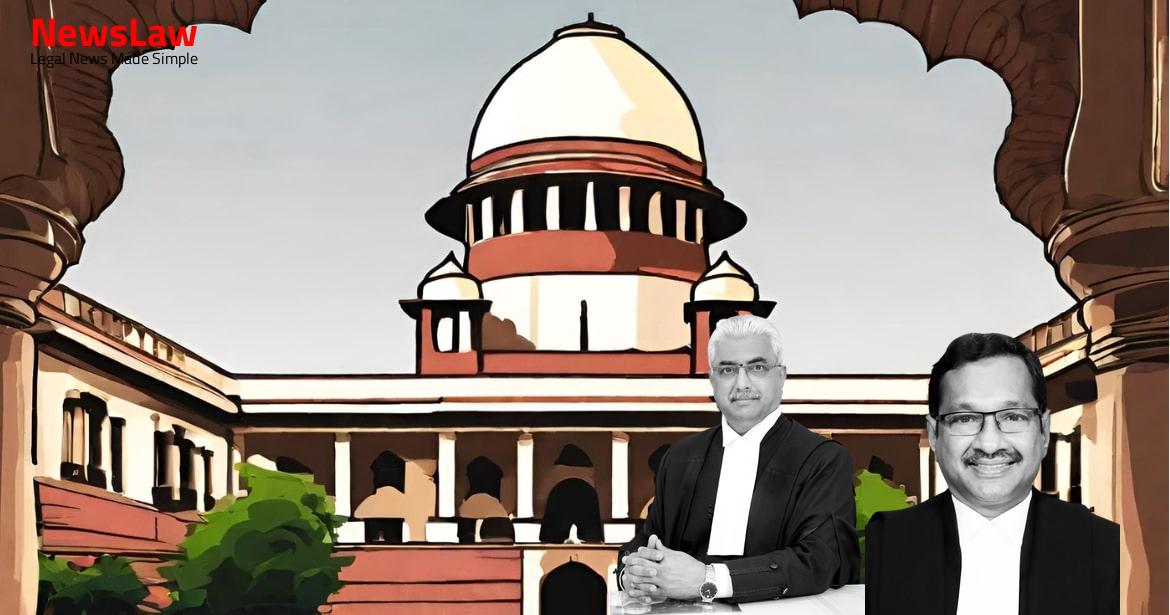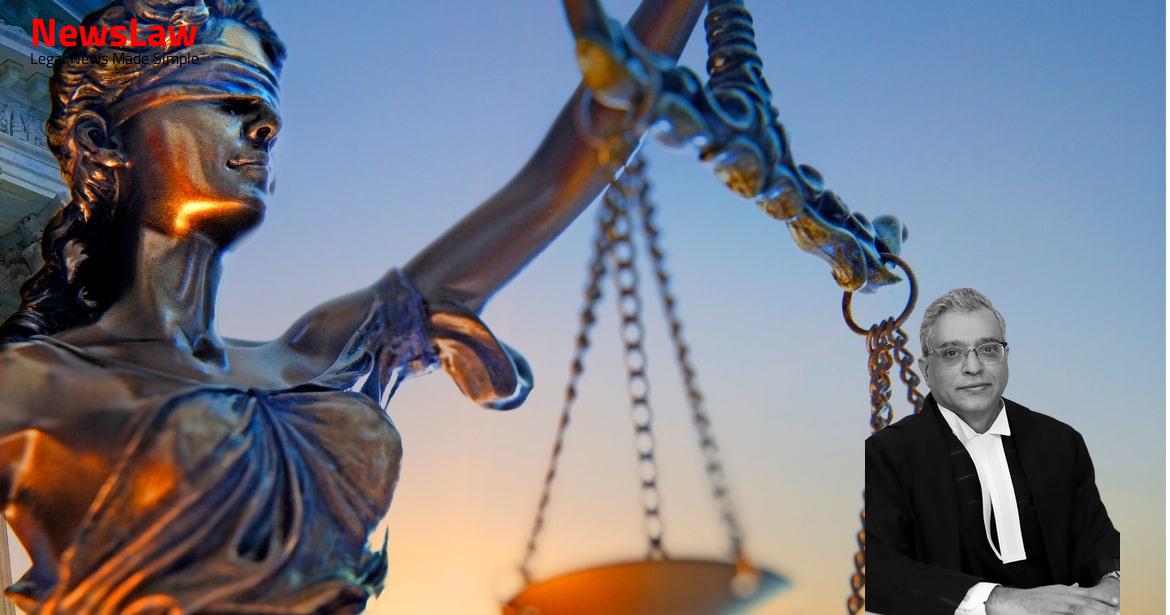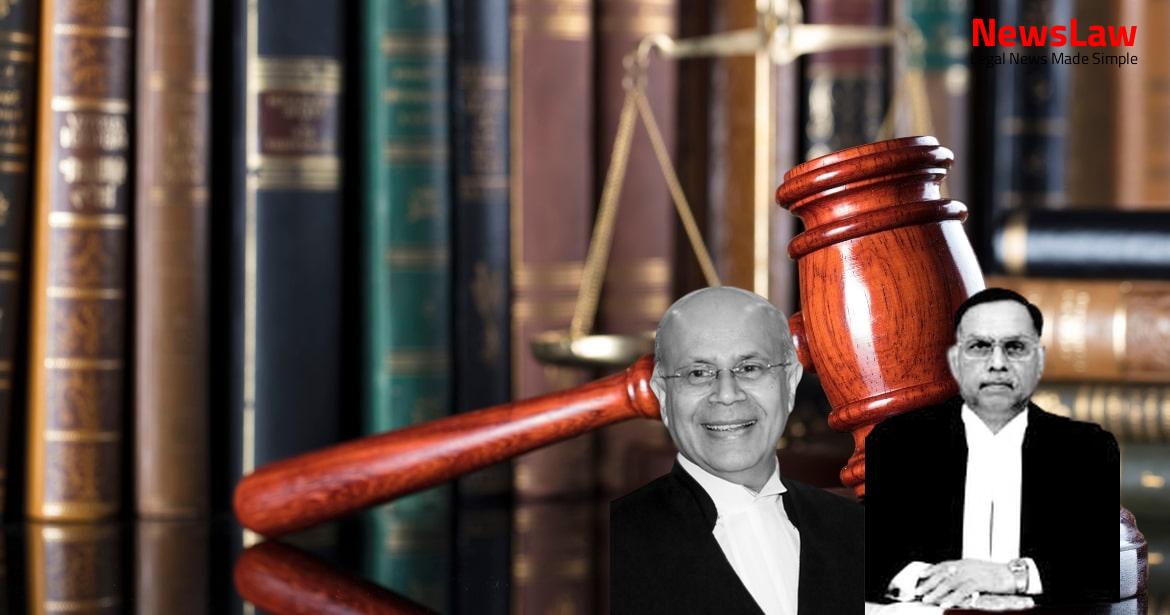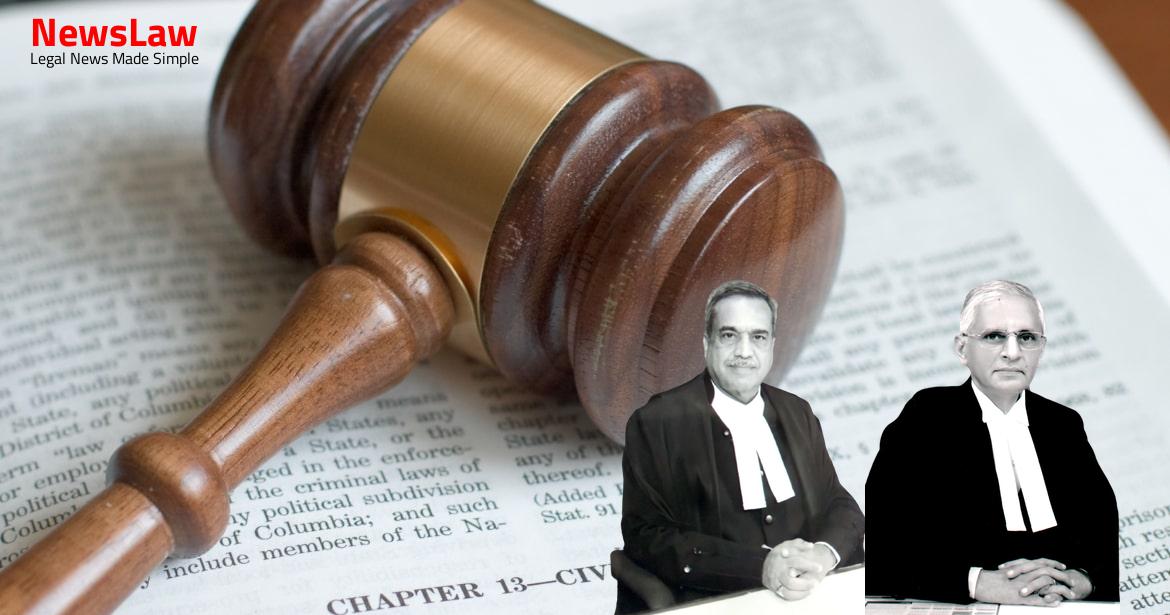The Supreme Court of India recently delivered a significant judgement regarding the acquittal of Accused No. 2 in the Passport Scam case. The case involved Accused No. 2 and other individuals implicated in facilitating the illegal procurement of a second passport. The Court’s decision emphasizes the need for robust evidence and careful consideration of expert opinions in criminal cases. This ruling sets a precedent for the legal system’s approach to cases involving fraudulent activities and conspiracy.
Facts
- Appellant facilitated Accused No. 1 in obtaining a second passport illegally.
- Appellant challenged the conviction under IPC and Passports Act for conspiracy.
- Other accused persons were Mr. J. Joseph, Smt. Sasikala, Mr. P. Manisekar, and Mr. S. Raghupathy.
- Accused No. 1 applied for a second passport through the Appellant to improve job prospects.
- Second passport issued to Accused No. 1 was returned undelivered and kept in safe custody.
- Appellant demanded Rs. 5,000 from Accused No. 1 for the passport, but he refused.
- Appellant returned the second passport to the Passport Office by registered post.
- Appeal by Accused No. 2 (Appellant) was dismissed, leading to the current case.
- Accused Nos. 1, 2, and 5 appealed their conviction and sentence.
- High Court allowed the appeals of accused Nos. 1 and 5, acquitting them.
- Judgment has attained finality as CBI did not challenge it.
- Accused No. 3 was acquitted by the Special Judge for CBI cases.
- CBI did not appeal against acquittal of accused Nos. 3 and 4.
- Accused Nos. 1 and 2 were convicted under Section 420 IPC and Section 12(1)(b) and 12(2) of Passports Act.
- Accused No. 5 was convicted under Section 12(2) of Passports Act and Section 13(2) and 13(1)(d) of Prevention of Corruption Act, 1988.
- Accused No. 5 was sentenced to one-year rigorous imprisonment for each offence, to run concurrently.
Also Read: Judgment by Supreme Court of India: Reinstatement of Service and Consequential Benefits
Arguments
- Accused Nos. 3 and 4 were acquitted of all charges related to similar offences, with no appeal filed against their acquittal.
- Accused No. 1, for whom the alleged second passport was issued, was acquitted due to lack of proof beyond reasonable doubt.
- The prosecution failed to establish when the application of Accused No. 1 was received by the appellant, including payments made by Accused No. 1 to the appellant.
- The handwriting expert did not provide a definite opinion on the handwriting found on the returned postal cover and its similarity to the appellant’s handwriting.
- The conviction of the appellant is deemed unsustainable due to various reasons, including lack of evidence linking the appellant to the details of the previous passport held by Accused No. 1.
- The prosecution’s case lacked credibility, especially with a key witness turning hostile and not supporting the prosecution’s narrative.
- The appellant did not depose about the accused already possessing a passport or informing her about it.
- The appellant was sitting next to the witness while she filled out the application form for the accused.
- The witness worked in a firm that routed passport applications through Eagle Travels.
- The prosecution claimed that the appellant facilitated the issuance of a second passport to the accused illegally.
- The conviction of the appellant was based on the deposition of three witnesses: Selvi Sakila Begum, Mr. Selvaraj, and Mr. Ravi.
- Selvi Sakila Begum, an employee of the appellant’s firm, filled out the application for the accused.
- Mr. Ravi from the Central Forensic Sciences Laboratory testified about the handwriting similarities found on a postal cover but could not give a conclusive opinion.
- Accused No.3 allegedly removed the returned passport of the accused from safe custody and handed it to the appellant through Accused No.4.
- Mr. Selvaraj, the proprietor of Eagle Travels, confirmed that the passport application for the accused was submitted through his firm with the registration fee paid by the appellant.
Also Read: Restoration of Trial Court Judgment in the Case of O.S. No.226 of 1998
Analysis
- The evidence presented by PW-15 regarding the payment of charges by the Appellant and their knowledge of Accused No.1 possessing a passport lacks documentary evidence and does not meet the burden of proof beyond reasonable doubt.
- PW-16’s testimony, noting similarities in handwriting between postal cover and the Appellant’s writing, lacks corroboration and is inconclusive in connecting the Appellant to the crime.
- Legal precedent emphasizes the caution needed in relying solely on handwriting expert opinions without substantial corroboration.
- The trial court’s acquittal of Accused Nos.3 and 4 due to lack of direct evidence further contrasts the conviction of the Appellant.
- The principle of parity dictates that similar evidence against multiple accused should lead to consistent decisions; thus, convicting the Appellant while acquitting Accused Nos.3 and 4 is unjust.
- PW-3’s testimony, treated as hostile, does not provide incriminating evidence against the Appellant, making their evidence unreliable and untrustworthy.
- Although corroboration is typically sought for expert opinions, rejecting uncorroborated conclusions solely on that basis is not justified.
- The science of identification of handwriting is not perfect, leading to higher risk.
- The duty of a handwriting expert is to provide scientific criteria for the judge to form an independent judgment.
- A more developed science reduces the chance of incorrect opinions.
- The science of identification of fingerprints is near perfection.
- Expert testimony is relevant under Section 45 of the Evidence Act.
- Prudence requires corroboration of handwriting expert opinion with other evidence.
- Doubting the opinion of a handwriting expert as a rule is unnecessary, but corroboration may be required based on specific case facts.
- Occasionally, a conviction should not solely rely on the opinion of a handwriting expert.
- Burden of proof lies on the prosecution to prove that the appellant knowingly furnished false information or suppressed material information to secure a passport for another person.
- In this case, prosecution failed to provide evidence that the appellant had prior knowledge of the accused possessing a passport or applying for a second one.
- Absence of evidence of prior knowledge of the accused having a passport led to the acquittal of the appellant.
- Conviction and sentence imposed on the appellant could not be sustained due to lack of evidence.
- The judgement of the Trial Court and the High Court affirming it were set aside, and appellant acquitted of the charges.
- Bail bonds of the appellant were cancelled.
- The court advised caution in relying on the opinion of a handwriting expert and emphasized the need to consider all relevant evidence before accepting or rejecting it.
- The appellant was charged under Section 12(2) of the Passports Act, 1967 for contravening provisions related to furnishing false or suppressing material information to obtain a passport.
Also Read: Anwar Ahmad vs State of U.P.: Interpretation of ‘Forthwith’ in Seizure Reporting Obligations
Case Title: YOGARANI Vs. STATE BY INSPECTOR OF POLICE (2024 INSC 721)
Case Number: Crl.A. No.-000477-000477 – 2017



